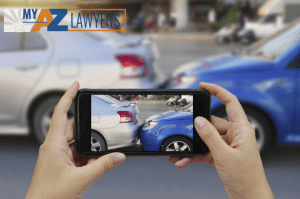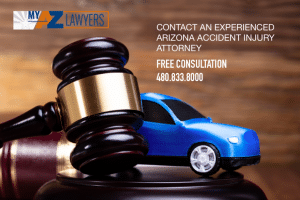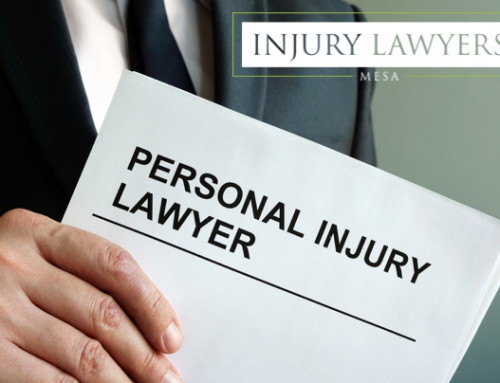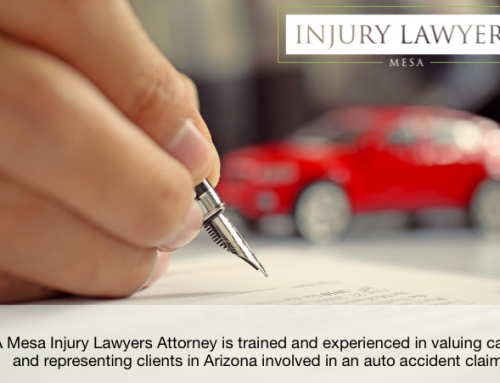What To Do After a Rear End Collision

Assess the Situation
After being rear ended, if you are in pain, you should immediately seek medical attention. If you don’t have any injuries requiring immediate medical attention, you should exchange insurance information with the other driver. Take pictures of the damages caused by the accident, or videos if they would better help depict the damage. Depending on the area you are in, the extent of the damages, and other factors, you may want to call the police to come to the scene and issue a police report. While it is generally pretty simple to prove who was at fault in a rear end collision, having a police report listing the other driver at fault can expedite payment by their insurance company.
Monitor Yourself for Symptoms
Some common injuries resulting from rear end collisions, like broken bones or facial scarring, will instantly be evident. Others, like head trauma or whiplash, could take a while to develop. Even if you are only in mild pain in the days following the accident, you should see a doctor. The other driver’s insurance company will likely divide your claim into two parts: the damage to your vehicle and the medical portion from your injury. Don’t settle the medical portion of your claim before seeing a doctor to examine you for signs of these injuries.
Research the Value of Your Vehicle

Speak to a Personal Injury Attorney
If the only damage from the accident was to your vehicle and not your person, you probably won’t need to hire an attorney. If you were injured, you should at least have a consultation with an attorney. Personal injury attorneys don’t get paid unless they win or successfully negotiate a settlement for your case, so they usually don’t charge for consultations either. Personal injury attorneys typically charge between 20-35% of your award. The attorney should be able to tell you what kind of settlement to expect for your case. If you decide to retain that attorney, they will handle all aspects of your case, including correspondence with the other party, from that point on.
Consider Negotiating a Settlement Agreement
The vast majority of personal injury claims are settled out of court. Trials can drag out months, if not years, and will require a great deal of your time and attention. Insurance adjusters will often start with a low offer for pain and suffering damages, which typically include a release of future medical claims resulting from the accident. You should keep track of all your medical costs, any transportation costs incurred due to damages to your vehicle, how much time you had to take off work, and any other calculable costs stemming from the rear end collision. You can also be compensated for intangible costs like pain and suffering and emotional distress. Your attorney should give you an idea of what to expect in your situation. Injuries resulting in permanent disfigurement or disability should be awarded much higher than temporary injuries, and should include provisions for future medical care.
While negotiating a settlement agreement, insurance adjusters have many tactics they use to get you to settle for as low as possible. They may present deadlines in which you have to accept a settlement agreement. This is to create a sense of urgency to pressure you into accepting a lower settlement figure than you would otherwise. You can ask the adjuster for an extension on the deadline if you are still deliberating, but it isn’t in the insurance company’s best interests to take a case to trial because you needed a few extra days to consider a settlement offer. Adjusters may also ask you to give a recorded statement and guide you into making statements that are harmful to your case. You should direct requests for these types of calls to your attorney. Don’t listen to an adjuster who tells you that you don’t need to hire an attorney. If settlement negotiations fail, your case will proceed to trial. If you are represented by an attorney, your retainer agreement may provide that their fee percentage will increase when the case goes to trial.
Talk to Your Arizona Lawyer for Injury, The Sooner the Better
After being rear ended in Arizona, you have two years to bring a personal injury claim before the statute of limitations expires. The sooner you contact a personal injury attorney, the sooner they can begin work on your case, gathering evidence, and negotiating a settlement agreement. That’s why after you’ve been in an accident, you should call our offices for expert legal guidance from the beginning to the end of your case. We don’t get paid unless we win, and the consultation is free, so call for your risk-free consultation today!





